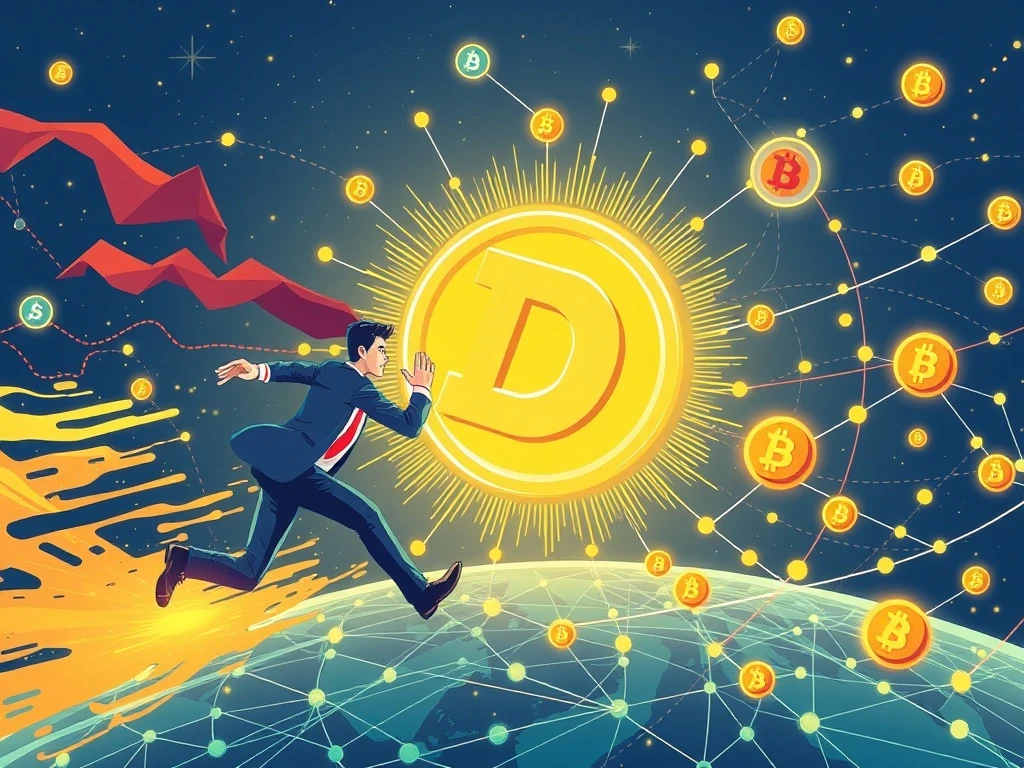Global financial authorities now face an urgent challenge as decentralized finance explodes into a $127 billion market. Regulators worldwide scramble to establish control over this rapidly expanding ecosystem. The stakes couldn’t be higher for financial stability and investor protection.
The Explosive Growth of DeFi Lending
DeFi lending achieved remarkable growth in 2025, reaching $127 billion in total value. This surge primarily stems from increasing stablecoin demand and real-world asset tokenization. Stablecoins backed by U.S. Treasuries facilitate cross-border transactions effectively. They bridge traditional finance with crypto ecosystems seamlessly. Tokenization enables fractional ownership of assets like real estate. Consequently, global investment opportunities expand dramatically.
Global Regulatory Response to DeFi Expansion
Regulators worldwide implement frameworks addressing DeFi regulation concerns. The U.S. passed the GENIUS Act on July 18, 2025. This legislation provides stablecoin oversight and consumer protections. Meanwhile, the European Union activated MiCA Regulation in December 2024. This framework harmonizes rules across member states comprehensively. Both approaches aim to reduce fraud risks significantly. However, regulatory coordination remains challenging internationally.
Financial Stability Implications
DeFi regulation becomes crucial for maintaining monetary policy effectiveness. Dollar-backed stablecoins potentially cause dollarization in vulnerable economies. This development could weaken local currency stability. Additionally, privatized seigniorage threatens government revenue streams. Tokenization may reduce traditional banking system reliance. Consequently, capital flows might become more efficient globally. However, anti-money laundering compliance requires urgent attention.
International Coordination Challenges
Effective DeFi regulation demands unprecedented global cooperation. Cross-border risks necessitate unified frameworks immediately. The European Securities and Markets Authority expressed concerns about tokenized stocks. They worry about retail investor confusion and market liquidity drainage. Therefore, regulators and industry players collaborate on standards. They balance innovation with risk mitigation carefully.
Future Outlook for DeFi Regulation
The DeFi regulation landscape continues evolving rapidly. Technological advancements outpace legislative processes consistently. Regulators must adapt to blockchain innovation continuously. Investor protection remains the primary concern globally. Financial stability depends on effective oversight mechanisms. Consequently, international dialogue intensifies among regulatory bodies.
Frequently Asked Questions
What is driving DeFi’s massive growth?
Stablecoin demand and real-world asset tokenization primarily drive DeFi expansion. These factors enable cross-border transactions and fractional ownership opportunities.
How do regulators approach DeFi differently across regions?
The U.S. focuses on consumer protection through legislation like the GENIUS Act. The EU prefers harmonized frameworks through MiCA Regulation across member states.
What risks does DeFi pose to traditional financial systems?
DeFi may cause dollarization, reduce monetary policy effectiveness, and challenge traditional banking intermediation through tokenized assets.
Why is international coordination crucial for DeFi regulation?
Cross-border transactions and global market integration require unified regulatory approaches to prevent regulatory arbitrage and ensure financial stability.
How does tokenization affect traditional investing?
Tokenization enables fractional ownership, enhances liquidity, and provides global access to previously illiquid assets like real estate and commodities.
What are the main concerns about stablecoin adoption?
Concerns include dollarization effects, privatized seigniorage, and potential disruption to local currency stability in emerging markets.








